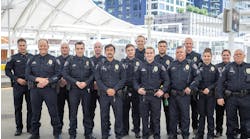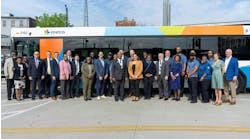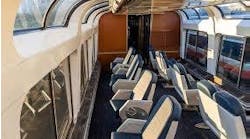Muni, the Bay Area's busiest transit system, has reversed its long-standing policy that barred passengers from bringing bicycles aboard the buses and streetcars. But there's a catch: Only folding bikes will be allowed.
The policy shift, while not everything for which bike advocates have lobbied, is nonetheless welcome, they say.
"It's going to benefit a lot of people," said Bert Hill, chairman of the San Francisco Bicycle Advisory Committee.
One of those people will be Hill himself. The 63-year-old plans to take his folding bike on the Muni Metro rail system between the Castro Street and West Portal stations to avoid having to pedal up the approximately 650-foot incline over Twin Peaks on his frequent rides between downtown and his home in the Miraloma Park neighborhood on the city's west side.
Muni issued a bulletin to its operators Monday informing them of the change and outlining the new rules: Bicycles must be folded and kept with their owners. Also, they cannot be placed on a seat, block a seat, interfere with passenger movement, or get in the way of wheelchairs.
Muni buses already are equipped with exterior front racks that can hold two bikes, but until now the two-wheelers weren't allowed inside the vehicles. They still are banned on San Francisco's historic fleet of cable cars.
The new policy is another element of the city's transit-first policy, which aims to get people out of their cars to cut down on air pollution and traffic congestion. "It's important to provide cyclists with easy and efficient access to our transit system," said Paul Rose, spokesman for the Municipal Transportation Agency.
Officials will keep a close watch on how the program is working and make adjustments as needed, Rose said.
Hill said he would like to see Muni initiate a pilot program in which standard bikes that can't be collapsed would be allowed on streetcars during nonpeak periods, similar to BART's bike policy. Rose said that idea is being studied but could prove problematic, given that the trains are often crowded before and after the morning and evening commutes.
It's unknown how many bike riders have folding bikes. But Leah Shahum, executive director of the San Francisco Bicycle Coalition, said they are growing in popularity, especially for commuters who use both pedal power and transit, such as many Caltrain regulars.
While Caltrain just completed its latest expansion of its program to convert more passenger cars into bike cars to reduce the number of cyclists left stranded at the stations until a train comes along with more room, there still aren't expected to be enough slots to accommodate all the standard bikes on the most heavily used runs, said Mark Simon, a spokesman for the rail system.
Copyright 2008 LexisNexis, a division of Reed Elsevier Inc. All rights reserved.
Terms and Conditions | Privacy Policy


